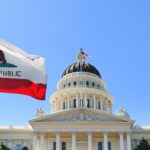In a decision with far-reaching implications for corporate climate accountability, a federal judge this week ruled that California’s groundbreaking climate disclosure laws—SB 253 (emissions reporting) and SB 261 (climate-related financial risk)—will remain in force. The ruling, which rejected a preemptive challenge by the U.S. Chamber of Commerce and allied business groups, clears the path for enforcement beginning in 2026.
A Defeat for Preemptive Legal Blocking
In late July, the U.S. District Court for the Central District of California confronted a motion for a preliminary injunction that sought to stop the state’s climate disclosure laws from taking effect. Judge Otis Wright II, in a comprehensive decision, concluded that “plaintiffs have not shown a likelihood of success on the merits” of their First Amendment claims, and thus denied the injunction.
The plaintiffs argued that requiring companies to report Scope 1, 2, and 3 emissions—or detail financial risks linked to climate change—compels them to engage in subjective or political speech. The court, however, made a clear distinction. SB 253’s emissions data, the judge held, is “purely factual and uncontroversial,” falling under the lower threshold of constitutional scrutiny for commercial disclosures. Under SB 261, which mandates climate risk reporting, the court acknowledged a higher degree of freedom is needed for closer examination—but still found that California’s investor-protection rationale withstands this intermediate review.
